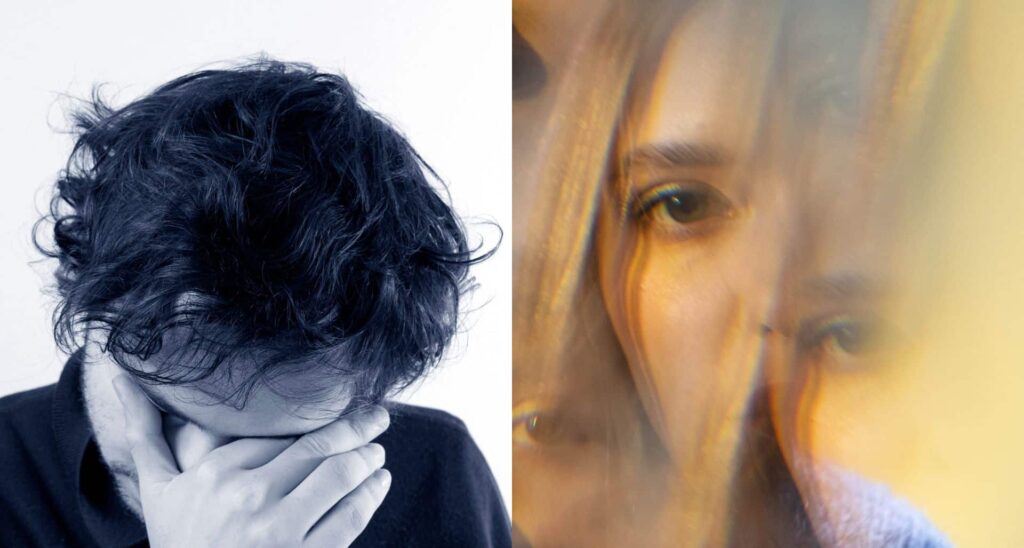Delusion VS Hallucination: Understanding the Key Differences
Delusions vs hallucinations are both manifestations of altered perceptions, often associated with mental health conditions such as schizophrenia or bipolar disorder. Delusions are false beliefs that persist despite evidence to the contrary, while hallucinations involve perceiving things that aren’t present, such as hearing voices or seeing things that aren’t there.
While these experiences can be distressing and disruptive to daily life, it is possible to manage them through various treatment approaches, including medication, therapy, and support from mental health professionals.
With proper treatment and support, individuals experiencing delusions or hallucinations can often achieve significant improvement in their symptoms and overall quality of life.
What is Delusion?
Delusions are false beliefs that persist despite evidence to the contrary, often stemming from distorted interpretations of reality. These beliefs are not in line with cultural or religious norms and can significantly impact an individual’s perception of themselves and the world around them.
There are various types of delusions, including paranoid delusions, where individuals believe they are being persecuted or conspired against, grandiose delusions, characterized by an inflated sense of self-importance or power, and somatic delusions, involving false beliefs about one’s body or health.
Examples of delusional thinking may include believing one has special powers, being convinced of a conspiracy against them, or holding a belief in their invincibility.
Delusions can be triggered by a combination of genetic, biological, and environmental factors, and they often co-occur with other mental health conditions such as schizophrenia or bipolar disorder.
The impact of delusions on mental health and daily functioning can be profound, leading to social withdrawal, impaired relationships, and difficulties in employment or education.
- Paranoid delusions: Belief that others are plotting against or spying on them.
- Grandiose delusions: Delusion of having exceptional abilities, fame, or wealth.
- Somatic delusions: False beliefs about one’s body, health, or appearance.
- Religious delusions: Beliefs involving religious or spiritual themes, often of a grandiose or persecutory nature.
- Erotomanic delusions: Belief that someone of higher status is in love with them.
- Persecutory delusions: Fear or belief that one is being targeted, harassed, or conspired against by others.
- Referential delusions: Belief that insignificant events or objects have personal significance or meaning.
- Jealous delusions: Unfounded belief that a partner is unfaithful.
- Control delusions: Belief that one’s thoughts, feelings, or behaviors are controlled by an external force.
What is Hallucination?
Hallucinations are perceptual experiences that occur without any external stimulus, meaning individuals see, hear, feel, smell, or taste things that aren’t present. These sensory perceptions are vivid and often indistinguishable from reality to the person experiencing them.
There are several types of hallucinations, including:
- Auditory hallucinations: Hearing voices or sounds that others do not.
- Visual hallucinations: Seeing objects, people, or scenes that are not there.
- Tactile hallucinations: Feeling sensations on the skin, such as tingling, crawling, or burning, without any external cause.
- Olfactory hallucinations: Smelling odors that are not present in the environment.
- Gustatory hallucinations: Tasting flavors or sensations in the mouth without consuming any food or drink.
Examples of hallucinations can range from hearing voices conversing to seeing vivid images of people or animals. Individuals experiencing hallucinations often perceive them as real and may have difficulty distinguishing them from actual sensory stimuli.
Hallucinations are closely associated with various mental health disorders, including schizophrenia, bipolar disorder, psychotic depression, and substance abuse disorders. They can also occur in neurological conditions such as epilepsy or Parkinson’s disease.
Hallucinations are typically indicative of underlying disturbances in brain function and neurotransmitter imbalances. In mental health disorders, hallucinations often accompany other symptoms, such as delusions, disorganized thinking, or emotional disturbances, contributing to the complexity and severity of the condition.
Understanding the relationship between hallucinations and mental health disorders is crucial for accurate diagnosis and effective treatment interventions.
Hallucinations VS Delusions: Understanding the Key Differences
In psychiatric symptoms, delusions vs hallucinations present distinct characteristics. Delusions involve fixed false beliefs, while hallucinations encompass sensory perceptions without external stimuli.
Distinguishing between these phenomena is crucial for accurate diagnosis and treatment planning. Following are the details that help you understand delusion vs hallucination:
| Core Difference | Hallucinations | Delusions |
| Nature | Perceptual experiences | False beliefs |
| Sensory Involvement | Involves sensory perception | Does not involve sensory perception |
| Types | Auditory, visual, tactile, olfactory, gustatory | Paranoid, grandiose, somatic, religious, etc. |
| Perception | Perceived as real | Believed despite evidence to the contrary |
| Impact | Immediate sensory experiences | Influence on thought patterns and behavior |
| Examples | Hearing voices, seeing things not present | Believing in conspiracy theories, having superhuman abilities |
| Associated Disorders | Schizophrenia, bipolar disorder, substance abuse | Schizophrenia, delusional disorder, mood disorders |
| Treatment Approach | Antipsychotic medications, therapy | Antipsychotic medications, cognitive-behavioral therapy |
How to Stop Being Delusional?
Stopping delusional thinking involves a multi-faceted approach aimed at addressing the underlying causes and cognitive distortions associated with the delusions. Firstly, seeking professional help from a qualified mental health practitioner is crucial. They can provide a comprehensive assessment and tailor a treatment plan suited to individual needs.
This may include medication to manage symptoms and psychotherapy, particularly cognitive-behavioral therapy (CBT), to challenge and restructure irrational beliefs. Additionally, engaging in self-care practices such as maintaining a healthy lifestyle, managing stress effectively, and cultivating a supportive social network can contribute to overall well-being and aid in managing delusional thinking.
Developing insight into one’s thought processes and learning coping strategies to deal with stressors or triggers can also be beneficial. Ultimately, overcoming delusions requires patience, perseverance, and a commitment to the treatment process, but with the right support and resources, significant progress is possible.
How to Stop Being Hallucinational?
Overcoming hallucinations can be a challenging journey, often requiring a multifaceted approach tailored to individual needs. Seeking professional help from mental health professionals, such as psychiatrists or psychologists, is paramount.
Treatment may involve a combination of medication, typically antipsychotics, to manage symptoms and therapy to address underlying psychological factors contributing to hallucinations. Cognitive-behavioral therapy (CBT) can help individuals challenge distorted perceptions and develop coping strategies to deal with hallucinatory experiences.
Additionally, creating a supportive environment, including engaging in healthy lifestyle habits, maintaining regular sleep patterns, and minimizing stress, can also play a crucial role in managing hallucinations. Building a strong support network of friends, family, or support groups can provide invaluable emotional support and encouragement throughout the recovery process.
With dedication, perseverance, and the right support system in place, individuals experiencing hallucinations can learn to effectively manage their symptoms and improve their overall quality of life.
Ending Note
Understanding delusions vs hallucinations is fundamental in recognizing and addressing the complexities of mental health disorders. Delusions involve fixed false beliefs, while hallucinations encompass sensory perceptions without external stimuli. Both phenomena can profoundly impact an individual’s perception of reality and daily functioning. However, with proper diagnosis, treatment, and support, individuals experiencing delusions or hallucinations can achieve significant improvement in their symptoms and overall quality of life.















